Noticing & Naming: A Monthly Practice
Being seen, listening to my inner teacher, and the softening power of beauty
July held smoky backyard fireworks, crisp mountain breezes, and sweat-as-you-stand-still humidity. It brought headline whiplash right alongside curry and cocktails, Top Golf with my nephews, and a long-anticipated send-off. Plus ice cream cake, which is never a bad decision. Today I’m sharing eight things I noticed, three things I named, and a couple quotes I’ve held on to. I hope this reflection gives you just a little more language for your life as you put the often hidden, but deeply true, things into words.
Eight Things I Noticed:
I’m trying to pay attention to the world around me and to the details of my days. Sometimes these observations may lead to bigger realizations, but other times, the act of noticing is enough. Here are eight things I noticed last month:
How desperate I felt to get out of the house before our trip to Colorado but also how good it was to come home after living in Airbnbs for a week.
Marty likes to perch like a parrot on long roadtrips. This may be my new favorite thing.
The way I relaxed as we drove into the mountains, my mind finally quieting down as the rocky slopes rose around us.
How hikes full of wildflowers, the cool breeze on my skin, and watching the changing golden hour light somehow made things feel more possible.
I noticed a few towering aspens scattered throughout a sea of pines on one of our hikes. They were the only trees rustling in an otherwise silent forest, and their leaves seemed to glitter as they flitted back and forth, waving at us as we hiked by. (It reminds me of the quote from Lore Ferguson Wilbert at the end of this post.)
While working at a coffee shop one day, I noticed I was rushing to get settled, trying hard not to inconvenience anyone as I unpacked my backpack in the narrow space between tables. Once I realized what I was doing, I tried to slow down. I reminded myself: I can take up space here too.
How much small things make a difference. Eating something. Getting some fresh air. Moving my body. It doesn’t fix it all, but it helps clear the fog.
Always the sky: The bright blue morning, the puffy clouds, the ominous afternoon thunderstorms. The sunsets lighting up the clouds in layers of pink and periwinkle. Two nights in a row of seeing double rainbows from our condo. Two!
Three Things I Named:
I have a loud internal life, and naming what’s going on the inside helps to quiet things down. When we can put thoughts and emotions into words, fear begins to lose its power, next steps come into focus, and we realize we’re not actually alone. Here are three things I named in July:
If I want to deepen my relationships, I have to let myself be seen. Sometimes it scares me to be different, even from my closest people. I want so badly to relate, to understand and to be understood, that it can be hard to stand apart, in big or small ways. I want to connect, so I merge. I find the areas where I’m the most similar and keep the other parts out of sight, safely tucked away. Even with the safest friends, there’s risk involved when we let ourselves be seen in all of our complexity and contradictions. There’s always the chance we could be dismissed or misunderstood, or that we end up making the other person feel that way.
But I’m learning that ignoring or minimizing the ways my thoughts and experiences differ from others’ actually creates more distance because I’m not bringing my whole self to the relationship. If I want to move toward more integrity, more wholeness in my relationships, then I have to trust other people enough to risk being seen. I have to trust others to hold my emotions and opinions and half-baked thoughts with care, and I have to trust that we can always seek repair if we need to. That’s what will deepen connection. And those are the relationships I want—the ones where each person is invited to bring their whole self into the light, without filters and without fear.Sometimes I need to take notes on things I say. Parker Palmer says, “We have a strange conceit in our culture that simply because we have said something, we understand what it means! But often we do not—especially when we speak from a deeper place than intellect or ego, speak the kind of words that arise when the inner teacher feels safe enough to tell its truth. At those moments, we need to listen to what our lives are saying and take notes on it, lest we forget our own truth or deny that we ever heard it.”1
As someone who tends to value other people’s opinions above my own, it feels a little arrogant to think about taking notes on things I say. But I love that Palmer draws our attention to this paradox that we often say things we don’t fully understand because we’re speaking from a deeper sense of knowing, the kind of knowing that comes from emotions, past experiences, and intuition, to name a few. Saying things out loud, especially in the presence of a thoughtful question-asker/listener, helps to bring things into focus. And for me, taking notes helps me retain thoughts and ideas longer, giving me the chance to explore something in more depth later.
I was reminded of this last month after meeting with my writing coach. After our call, my coach sent me some notes that included three things I’d said are important to me when it comes to deciding whether or not to take on a new project. Even though I remember saying those things, I wouldn’t have had that same clarity if she wouldn’t have written them down. Having someone reflect our words back to us is incredibly valuable, but I wonder how often we could do this for ourselves too. I’m trying to develop a habit of jotting down a few thoughts after therapy sessions and meaningful conversations with friends, not only to remember their words, but also to remember mine. When that inner teacher shows up, I want to make sure I’m listening.Beauty softens and settles us. I say I believe that paying attention to beauty matters. And most days, I do. But when big, heavy things happen in the world, I can easily feel silly for being captivated by wildflowers and aspen trees. Sometimes I wonder if paying attention to these things is too small. Am I just trying to escape? Should I be staring at headlines instead of sunsets?
explains the connection between sight and stress: “Stress can both swell and be soothed by sight. From the nearsighted vision of our fear focusing in on danger, discouragement, and perhaps some doomscrolling, shifting your sight up and out can shift the state of your nervous system toward calm and hope. Directing your eyes to take in the panorama in front of you can turn off the switch in your brainstem that is flooding your body with too much vigilance and alertness. By directing our vision back to a wider view, we help our bodies remember where we are and who we are.”2
But in a month that brought breaking news at an Olympic speed (plus all the regular questions and fears that come with being a person), staring at the mountains and the sky created a visceral shift in me. My body relaxed and my mind felt clearer. Stressors seemed smaller. Difficult things seemed possible. And God seemed closer, present in the colors and the sounds and the light.
Author and therapist
Noticing beauty can help return our bodies to a state of safety and rest, allowing us to breathe deeply and feel more like ourselves. Author calls beauty, laughter, and other good things counterweights against all that is hard and heavy. She says, “A counterweight is anything that helps keep us upright against the strain of everything that hurts in this world and our lives. It means we acknowledge that while there’s a lot we can’t control, there’s also a lot we CAN control.”3
Paying attention to beauty is not meant to be a way to minimize or avoid pain, but it can bring us back upright and keep us hopeful, so that we can engage with the hard things in our world and in our lives. So keep looking for beauty, and when you find it, soak it in, let it soften you, and extend that sense of safety and rest to others.
Questions for Your Practice
Is there a part of you that you’re avoiding or minimizing in order to connect with someone? What would it look like to risk being more fully seen in that relationship?
When was the last time you heard yourself say something you hadn’t realized you were thinking or feeling? What did that clarify for you? (Try writing it down so you don’t forget!)
Why do you think paying attention to beauty matters? What’s something beautiful you noticed recently?
What are some counterweights in your life right now? Remember Martin’s definition: “anything that helps keep us upright against the strain of everything that hurts in this world and our lives.”
Words That Resonated
In an effort to give us more language for our lives, here are two quotes that stuck with me last month.
“Poet W.H. Auden once wrote, ‘A culture is no better than its woods,’ and if we are like the woods of a homogenous pine plantation, our culture is doomed to fail. We simply cannot grow strong and tall and resilient only among our own. We need diversity, not just for diversity’s sake but because we are, like the trees of the forest, mutualists. We cannot get what we need only from our own kind, those who think like us, act like us, vote like us, and plan like us. Nor can we truly give to only our own kind. This would be like bringing oranges to a party hosted by an orange grower. The orange grower doesn’t need our oranges, and so the gift isn’t really a gift; it’s a surplus. But when we mingle with and serve those who are not like us, we set a better feast before one another, a diverse, nutrient-rich, complex feast.” —Lore Ferguson Wilbert, The Understory
“Empire’s drive for efficiency tells us there can, should, and will be a fix for everything. That healing is a waste of time. That we should aspire to go back to normal—to predictable, to productive, to independence. It’s a seductive message, because it’s the most natural thing in the world to want to fix. Healing requires us to grieve a past way of being that is lost to us forever. Healing is so, so slow, it can feel like the rest of the world is passing us by. . . . But when we let ourselves be sold the lie that the slow way of healing is defective and unnecessary, or even lazy and selfish, we end up being sold fixes that aren’t real. . . . Ultimately, healing is a process we can’t skip over, and often one that never ends, but when we accept that, healing also reveals itself as a beautiful, creative, and deeply communal choice.” —Lyndsey Medford, My Body and Other Crumbling Empires
Thanks for reading, friends. I hope you search out beauty and other counterweights in the month to come.
From Let Your Life Speak by Parker J. Palmer
From The Lord Is My Courage by K.J. Ramsey
From Shannan Martin’s Instagram post about counterweights





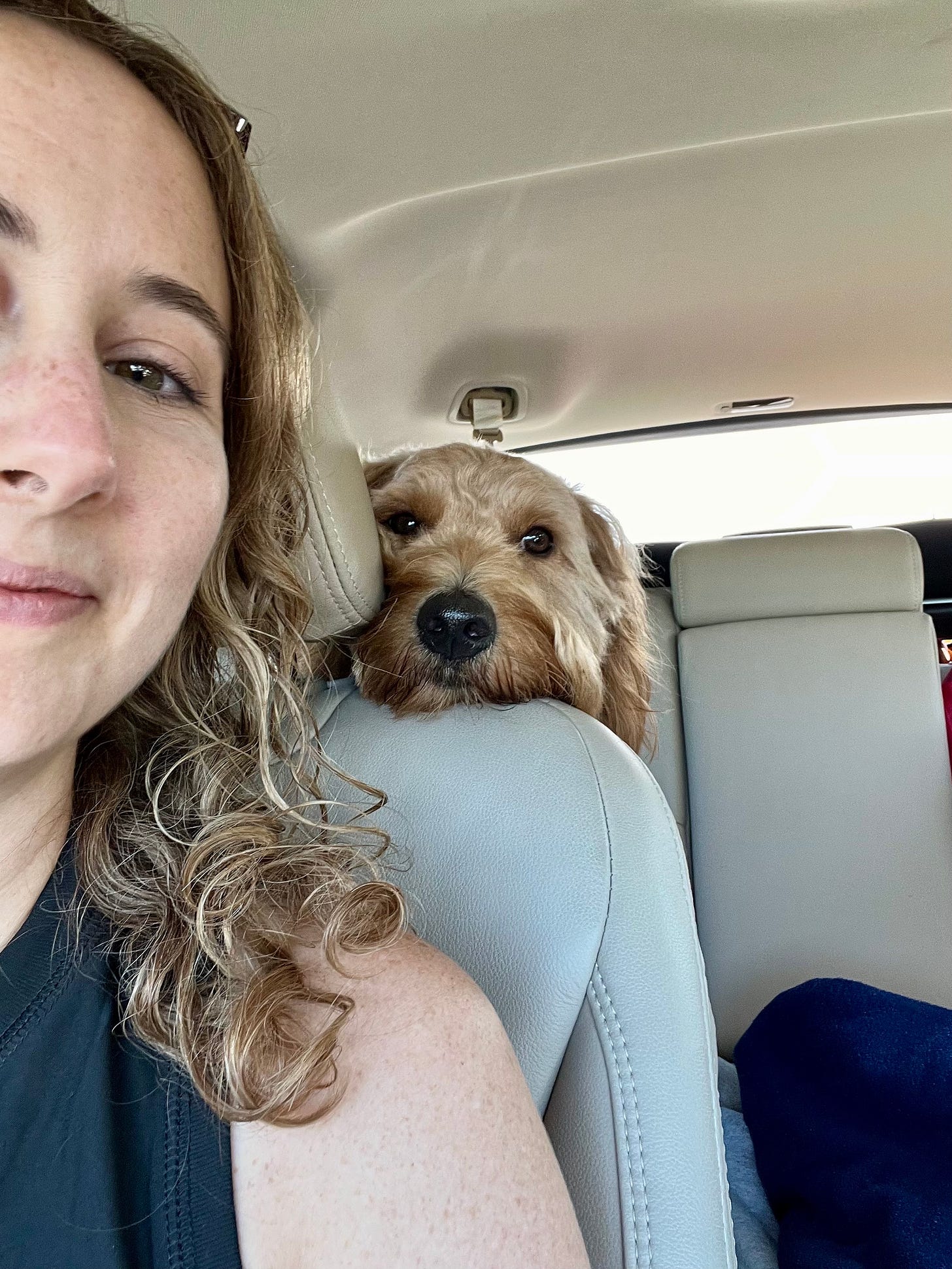


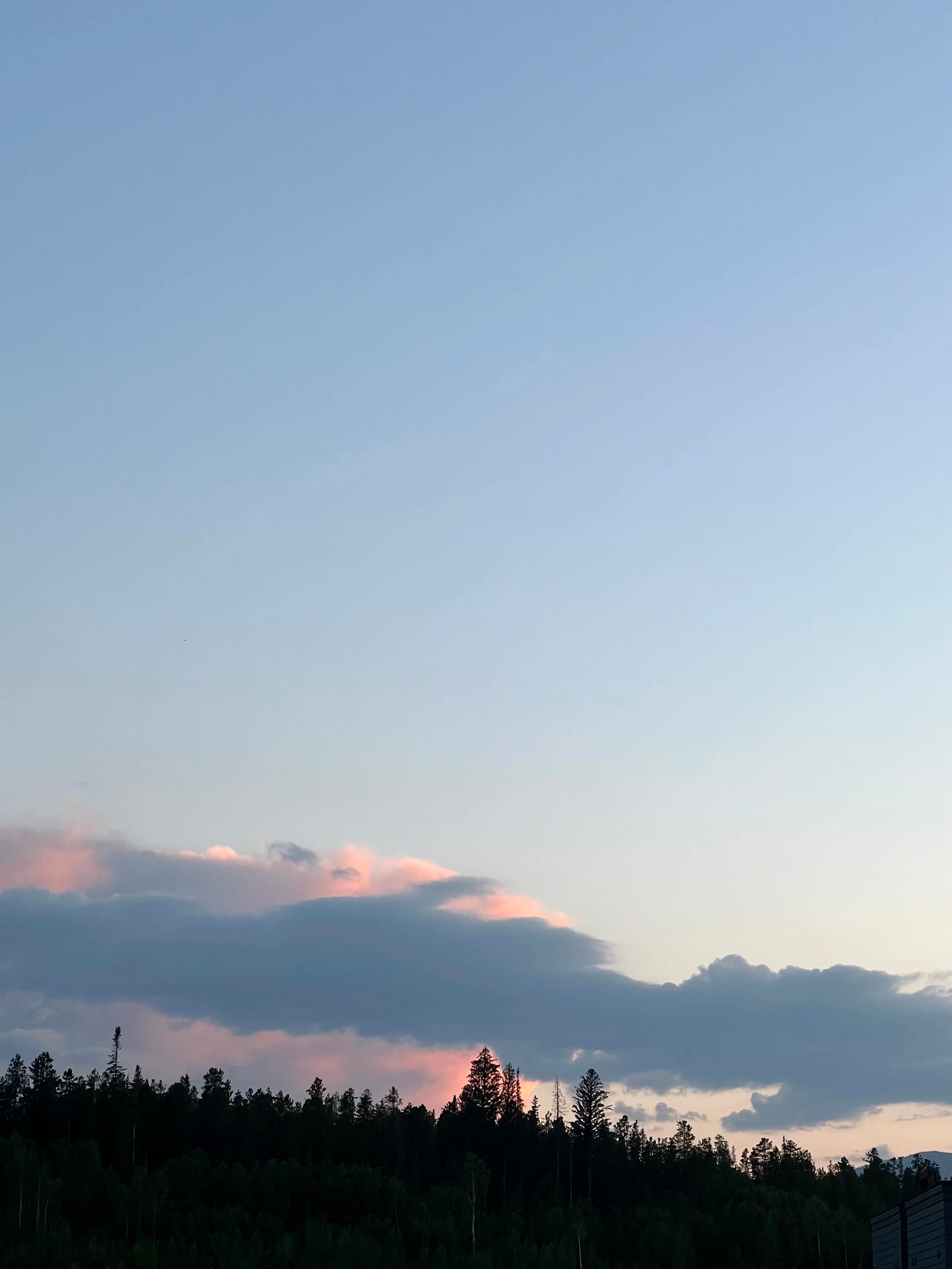

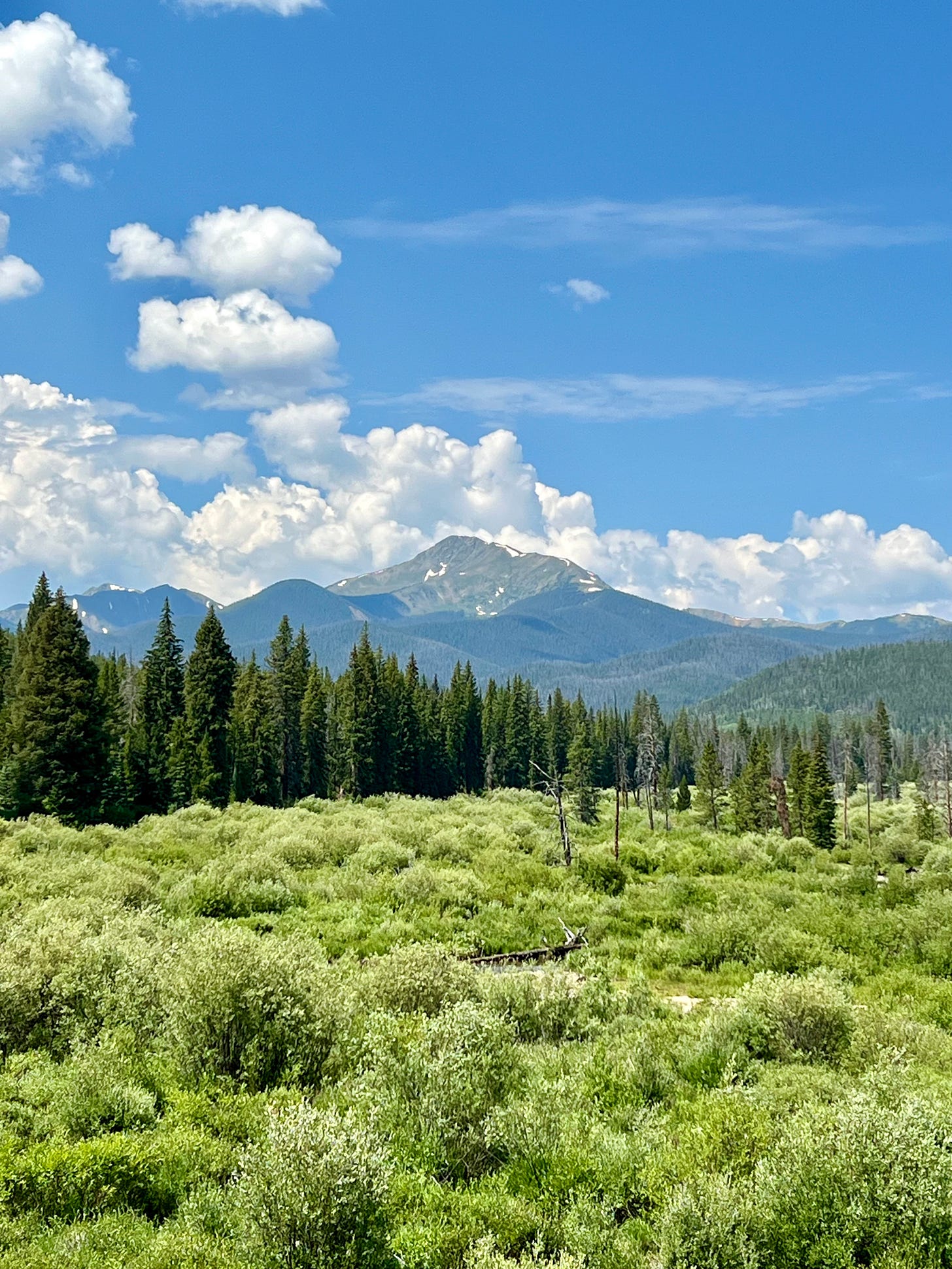
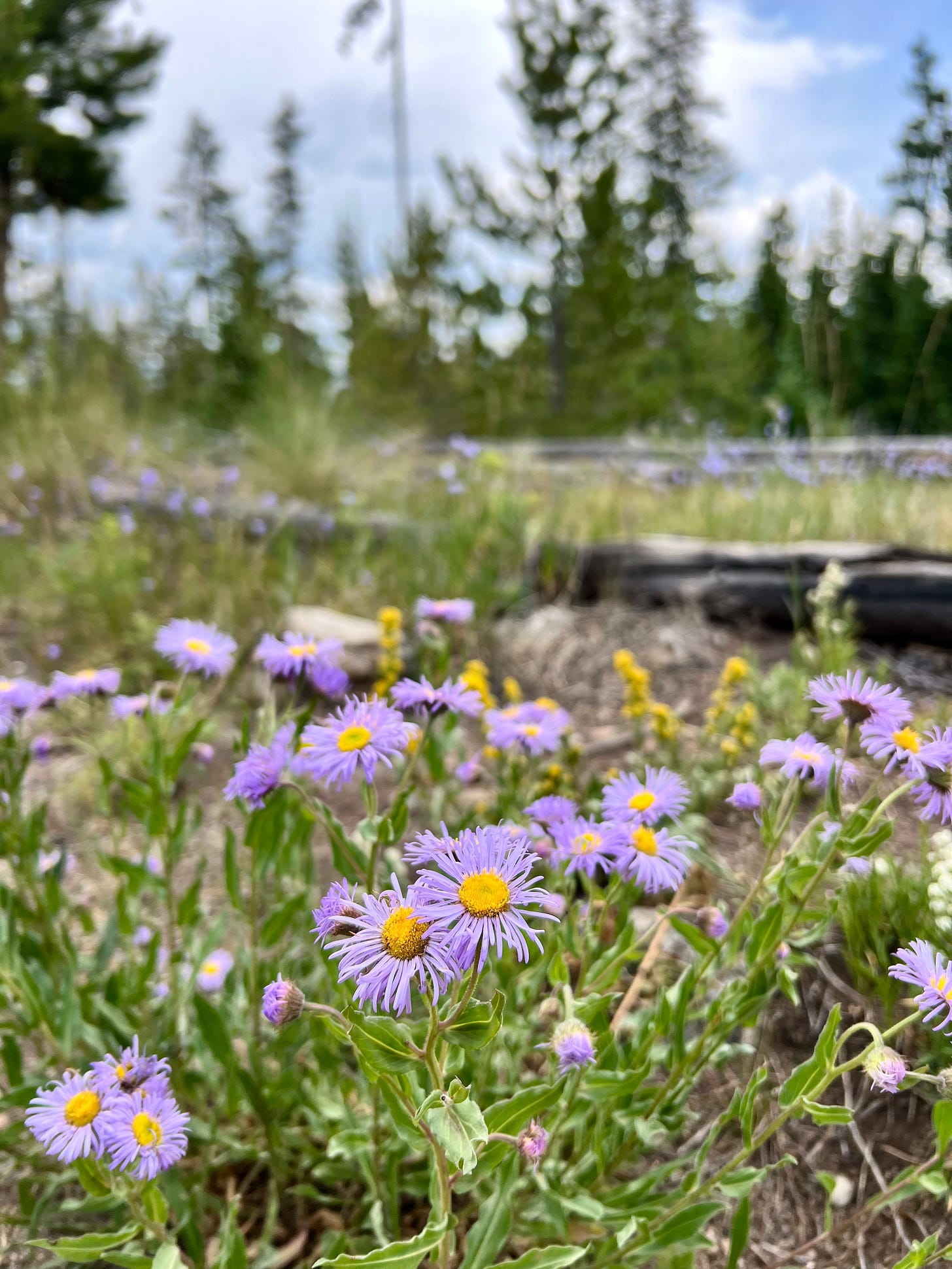
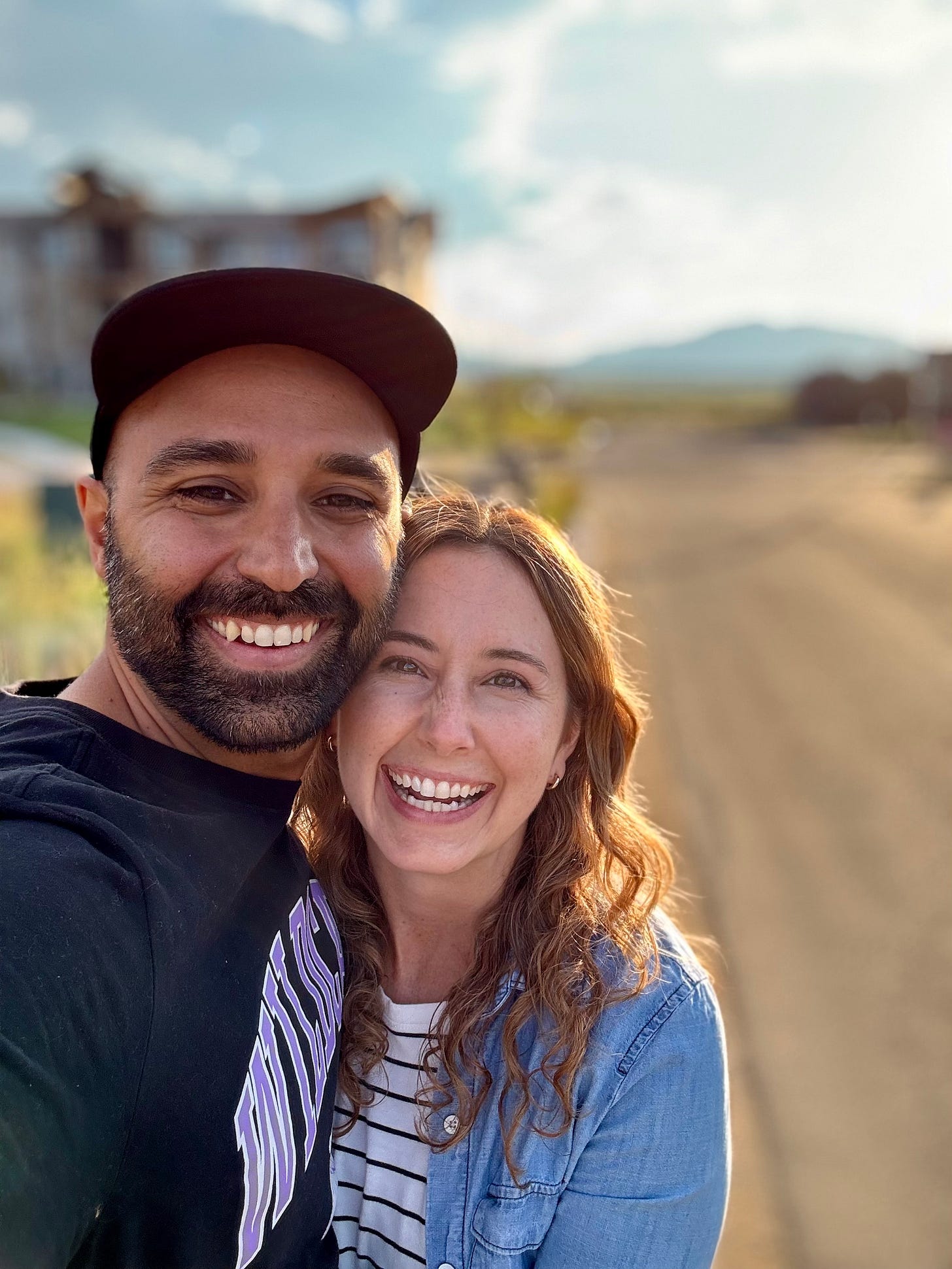
Somehow I missed this post! You are wise, sis. I desire to keep track of what I think and say, but often don’t find as much value in it as the words of others. Thanks for the reminder!
Loved the part about beauty & laughter being counterweights to the hard & heavy in life....keep writing!